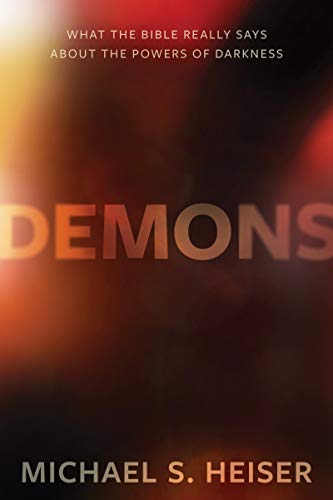BEN: Your distinction in Chapter One between divine and supernatural causation is helpful, with the latter referring to demons etc. unleashing disease, death, natural forces on unsuspecting humans, things not generated by the God of the Bible. I wonder however what you make of those who say that once the Fall happened, and as Paul puts it the whole of creation was subjected to ‘futility’ and longs for liberation, why would it be wrong to leave out demons from the explanation and simply say, this is the ongoing effect on humans of a fallen world gone wrong? Why do we need to predicate supernatural causations of say earthquakes, like many ancients and some moderns do? I like to point to 1 Kings 19 as a response to insurance companies and others that want to call natural disasters ‘acts of God’. No, I say, God was not in the earthquake or the conflagration etc. which as a minimum means you can’t read God’s will for us from such things. Right?
MICHAEL: If by predicate (“Why do we need to predicate supernatural causations of say earthquakes, like many ancients and some moderns do”) you mean “assert,” I’d say we don’t need to assert that. I think the point of what the OT does by putting the Canaanite deities thought to be behind such things under the authority of Yahweh is theological messaging – i.e., it informs readers that these things happen only under the control (sovereignty in our lingo) of the God of Israel. Nature functions as it does because of the way God created it. As I noted in Unseen Realm, creation was imperfect save for Eden (and even Eden had to be maintained, but the verbs used to describe that task aren’t the same as the wider creation mandate to “rule” and “subdue”). I take the description in Gen 1:31 (“very good”) not as perfect (that would require a different Hebrew term), but in a state of being what God wanted it to be—habitable for human beings (in our lingo again, “fine-tuned” for human existence). The curses could be used to argue that chaos is “less restrained” in the wake of the fall, but the curses shouldn’t be used to suggest that nature couldn’t kill humans prior to the fall. Adam can’t live under water, for example. He wasn’t the gill man. Animals could eat plants that would kill humans. The bio-diversity was needed just as much then as now. But since I don’t think that Genesis is designed to teach science, I don’t think we can take Scripture and map out what life forms existed or not before and after the fall (e.g., viruses), or what parts of nature are worse because of the curse. (Personally, I suspect the point of the curse on Adam is to highlight that his “in Eden” task will now be transformed to the “outside Eden” level of work, and so the curse may be more focused than “now everything bad in nature comes into existence” sort of thinking).













